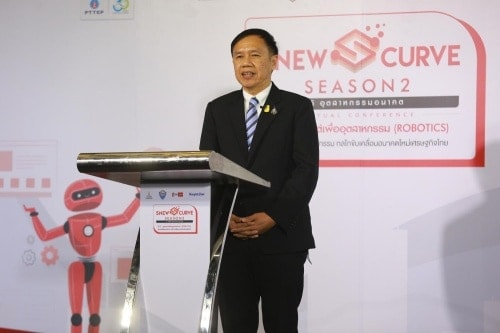Thailand will equip vocational students with skills to work alongside and maintain factory robots to cater anticipated demand for 200,000 robotics-trained workers by 2024, the Bangkok Post reported.
The Office of the Vocational Education Commission (OVEC) will oversee the scheme, which is part of the revamped Thailand vocation education system project launched in October.
The scheme comes at a crucial time when factories are moving from China to Thailand, and the urgent need to fill the gap for robotics-trained workers grows as many of these factories automate with robotics.
Monthon Paksuwan, OVEC deputy secretary-general said during the recently concluded “5 New S-curve” webinar that education policymakers have already forged partnerships with private firms to offer upskilling courses in robotics
He added that the scheme will begin with mechatronics and robotic courses of the Human Capital Excellent Center (HCEC), which are taught to a total of 5,200 students annually at 161 private and state schools across the country.
The HCEC is also launching special courses to retrain teachers and help them keep up with changing robotics and artificial intelligence (AI) technology.
Robotics thrive despite COVID-19 pandemic
In the last 11 months between January to November, the automation and robotics industry players in Thailand have invested a total of 651-million baht – up from 29-million baht last year.
“Previously, Thailand used 3,000-4,000 units of industrial robotics, but this has risen to 10,000-20,000 units to replace the human workforce, particularly migrant workers," Djitt Laowattana, executive adviser of the Eastern Economic Corridor Human Development Center (EEC HDC), told the Bangkok Post.
In the EEC, demand for robotic-skilled workforce has jumped from around 30,000 to 50,000 after the pandemic.
Furthermore, by early 2021, the EEC area will be ready for the 5G network that would move the country towards Industry 4.0, Laowattana said. Smart manufacturing will take shape with the integration of automation, Internet of Things (IoT), big data and cloud in the production process.



